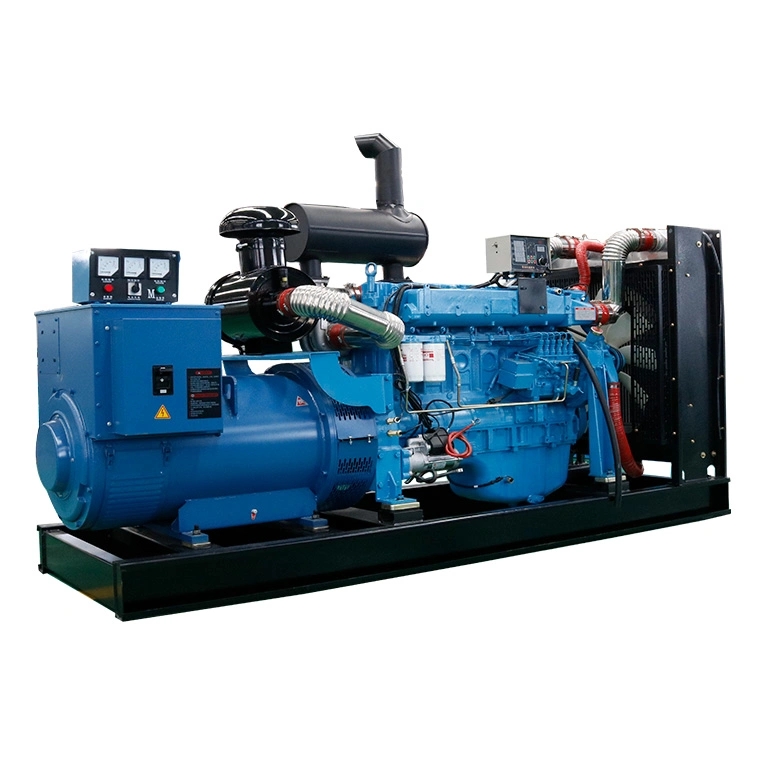Introduction
Diesel generators play a crucial role in providing backup power in various industries and applications. Reliability is of utmost importance when it comes to diesel generators as they are relied upon during power outages and emergencies. In 400kw diesel generator , we will explore the significance of reliability standards in diesel generators and how they contribute to ensuring uninterrupted power supply.
Importance of Diesel Generators in Various Industries

Diesel generators are widely used in industries such as healthcare, telecommunications, data centers, manufacturing plants, construction sites, and more. These industries rely on continuous power supply to ensure smooth operations and prevent downtime that can result in significant financial losses. Diesel generators serve as a reliable backup power source during grid failures, natural disasters, and other emergencies, ensuring that critical operations can continue without interruption.
Reliability Standards in Diesel Generators
Reliability standards are essential to ensure that diesel generators perform as expected when called upon to provide backup power. These standards encompass various aspects of the generator's design, maintenance, and performance to guarantee optimal reliability and efficiency. Some key reliability standards for diesel generators include:
1. Design and Construction Standards: Diesel generators must be designed and built to meet industry-specific standards and regulations to ensure their reliability and safety. This includes using high-quality components, robust construction, and adherence to relevant codes and standards.
2. Regular Maintenance and Testing: Regular maintenance and testing are crucial to the reliability of diesel generators. Scheduled maintenance activities such as oil and filter changes, fuel system checks, battery inspections, and load bank testing help identify and address potential issues before they lead to generator failure.
3. Fuel Quality and Storage: The quality of fuel used in diesel generators is paramount to their reliability. Proper fuel storage practices, such as regular fuel testing, filtration, and rotation, help prevent fuel degradation and ensure that the generator can start and run smoothly when needed.
4. Environmental Considerations: Diesel generators must be installed and operated in compliance with environmental regulations to minimize their impact on air quality and public health. Proper emissions controls, noise reduction measures, and fuel spill containment systems are essential for meeting environmental standards.
5. Remote Monitoring and Control: Remote monitoring and control systems allow operators to track the performance of diesel generators in real-time, receive alerts for potential issues, and take corrective actions promptly. This proactive approach helps prevent unexpected downtime and ensures the reliability of backup power systems.
Challenges in Maintaining Reliability Standards
Despite the importance of reliability standards in diesel generators, there are several challenges that organizations may face in maintaining these standards effectively. Some common challenges include:
1. Budget Constraints: Investing in high-quality components, regular maintenance, and advanced monitoring systems can be costly, especially for organizations with limited budgets. Balancing the need for reliability with budgetary constraints can be challenging for some businesses.
2. Skilled Workforce: Ensuring that personnel responsible for maintaining and operating diesel generators are adequately trained and skilled is crucial for maintaining reliability standards. A lack of skilled workers or turnover in maintenance staff can impact the reliability of generator systems.
3. Changing Regulations: Environmental regulations, safety standards, and industry requirements are constantly evolving, requiring organizations to stay up-to-date and ensure compliance with the latest standards. Keeping pace with regulatory changes can be challenging for organizations with multiple diesel generators in operation.
4. Aging Infrastructure: Older diesel generators may face reliability issues due to wear and tear, outdated components, and limited availability of spare parts. Upgrading or replacing aging infrastructure to meet current reliability standards can be a significant challenge for organizations.
Strategies for Improving Reliability Standards
To overcome the challenges associated with maintaining reliability standards in diesel generators, organizations can adopt several strategies to enhance the reliability and performance of their backup power systems. Some effective strategies include:
1. Invest in Preventive Maintenance: Implementing a comprehensive preventive maintenance program that includes regular inspections, testing, and servicing of diesel generators can help identify and address potential issues before they escalate into costly failures. By proactively maintaining generator systems, organizations can improve reliability and extend the lifespan of their equipment.
2. Implement Remote Monitoring Systems: Deploying remote monitoring and control systems that enable real-time tracking of generator performance, predictive maintenance alerts, and automated responses to alarms can enhance the reliability of backup power systems. Remote monitoring allows operators to monitor multiple generators from a centralized location, improving visibility and control over critical assets.
3. Conduct Regular Load Bank Testing: Load bank testing is a critical aspect of diesel generator maintenance that involves applying a load to the generator to verify its capacity and performance under varying loads. Regular load bank testing helps ensure that the generator can handle its rated capacity and identify any issues related to fuel delivery, cooling systems, or electrical components.
4. Train and Retain Skilled Workforce: Investing in training programs and continuing education for maintenance staff can help ensure that personnel have the necessary skills and knowledge to maintain diesel generators to high reliability standards. Retaining skilled workers through competitive compensation and career development opportunities can also contribute to the long-term reliability of generator systems.
5. Upgrade to Modern Equipment: Upgrading outdated diesel generators with newer, more efficient models that meet current emissions standards and performance requirements can improve reliability and reduce operating costs. Modern generators often feature advanced control systems, enhanced fuel efficiency, and reduced emissions, providing organizations with a more reliable backup power solution.
Conclusion
Reliability standards play a crucial role in ensuring the performance and effectiveness of diesel generators as backup power sources in various industries. By adhering to industry-specific standards, conducting regular maintenance, investing in remote monitoring systems, and addressing common challenges, organizations can enhance the reliability of their generator systems and minimize the risk of downtime during power outages and emergencies. Diesel generators will continue to be a vital component of backup power infrastructure, and maintaining high reliability standards is essential to guarantee uninterrupted power supply and operational continuity.
